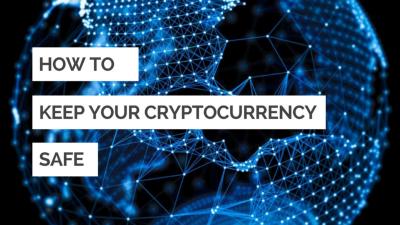Cryptocurrencies are stored on the blockchain. Just like banks have account name & number, cryptocurrencies have addresses to their wallets on the blockchain. Each wallet has a public address and a private address. Public address is where you can receive token/altcoin at, while the private address is the key to access your wallet or to send token/altcoin.
To be precise, you never store a token/altcoin in your wallet. What you store is the public and private keys/addresses in your wallet.
There are 5 different types of wallets:
Desktop Wallets Desktop wallets can be downloaded and installed on a computer, as the name suggests. However, there’s always a risk if your desktop gets hacked or gets a virus you may lose your funds. Here’s the link to official Bitcoin wallet.
Mobile Wallets Mobile wallets are app-based wallets which are easy to use and always accessible. Although, you may lose your funds if your phone gets stolen or hacked. Bread wallet is bitcoin mobile wallets available for iOS/Android.
Online Wallets Online Wallets easiest way to store your coins but also it’s least secure of them all. All exchanges have online wallets built in. Coinbase and MyEtherWallet are two best examples.
Paper Wallets Paper wallets are one of the safest and cheapest way to store your coins. A paper wallet is a print out of public and private keys usually containing QR codes. But you have to keep it safe from water and fire.
Hardware Wallets (Cold Storage) Hardware wallets are by far the safest and most convenient way to store coins. Ledger Nano S and Trezor are the most popular choices, specially designed to store public and private keys.
Ledger Nano S
In my opinion, hardware wallets are the best and safest option for cryptocurrencies. It’s little expensive but after a while you’ll see the advantages for it.
Better be safe than sorry!
| Article originally published on Hackernoon written by Askay Shah || January 10, 2018 |||

